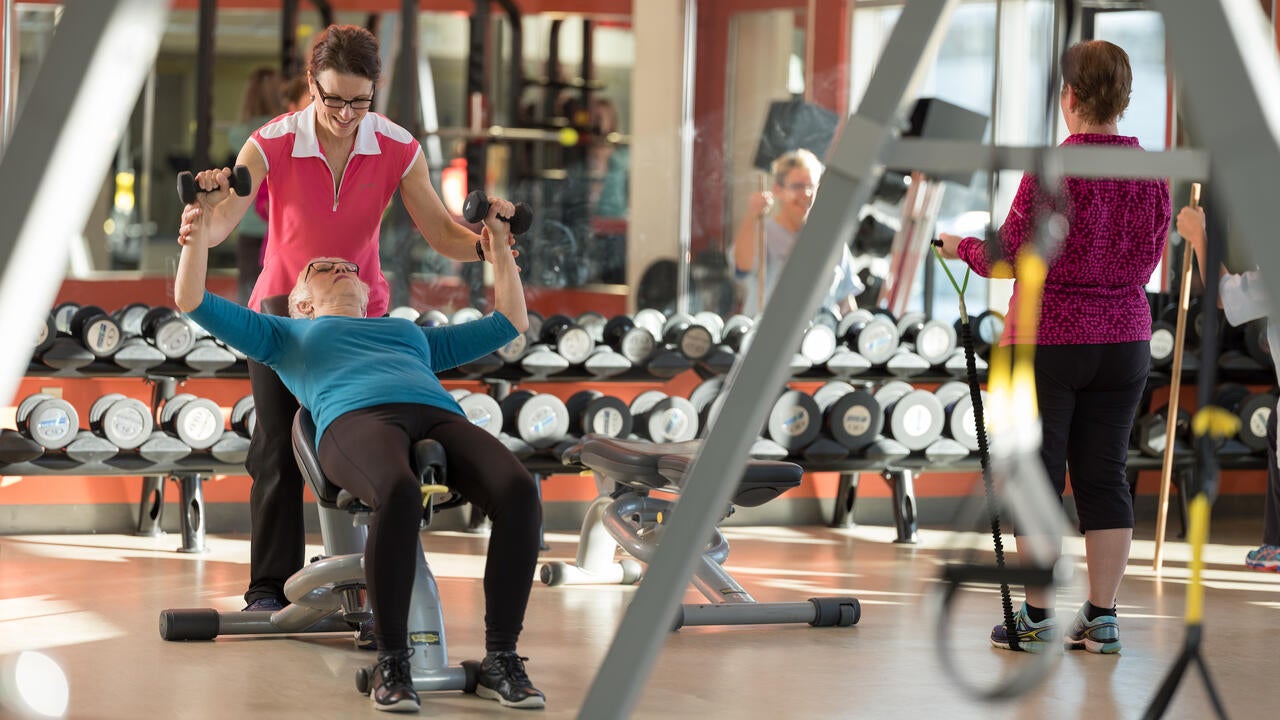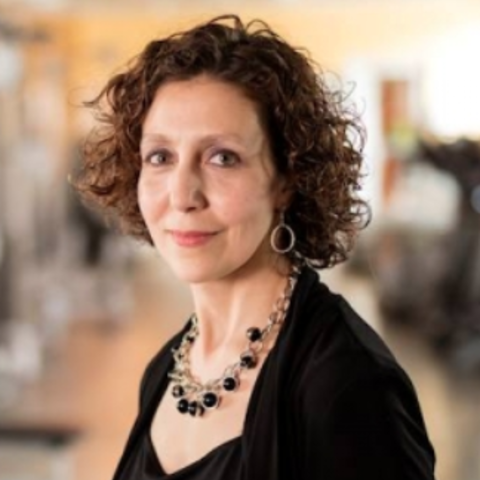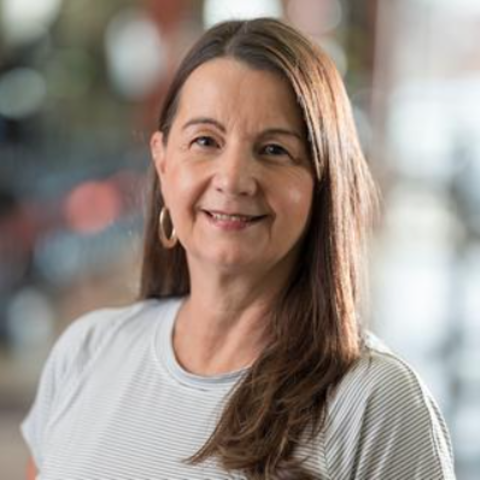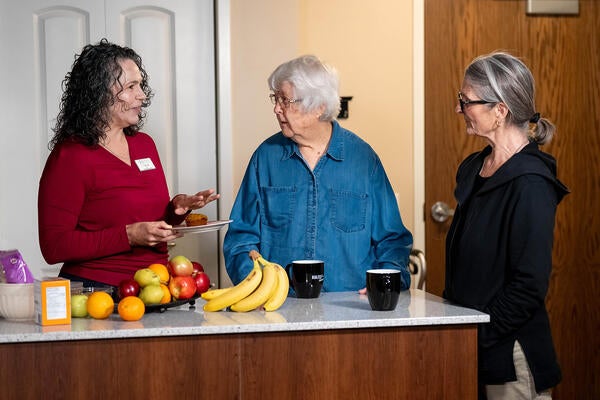
Fighting breast cancer with exercise
UW WELL-FIT programs help improve health outcomes

UW WELL-FIT programs help improve health outcomes
By Eugenia Xenos Anderson Faculty of HealthEvery day in 2020, it is estimated that 75 Canadian women were diagnosed with breast cancer, says Marina Mourtzakis, a Kinesiology and Health Sciences researcher at the University of Waterloo. “That’s approximately 27,400 women with a diagnosis, representing 25 per cent of all new cancer cases in women.”
 Mourtzakis’ research examines the relationships between nutrition, exercise, body composition and the effects of these factors on muscle metabolism in patients with cancer, as well as healthy people. She says many cancer patients experience varying degrees of muscle loss at different times during the disease.
Mourtzakis’ research examines the relationships between nutrition, exercise, body composition and the effects of these factors on muscle metabolism in patients with cancer, as well as healthy people. She says many cancer patients experience varying degrees of muscle loss at different times during the disease.
“Loss of muscle is thought to have a detrimental effect on survival, disease progression, immune function, as well as physical function,” Mourtzakis says.
It’s one of the reasons she is involved with UW WELL-FIT, a suite of evidence-based exercise programs for individuals who are currently or have previously undergone cancer treatment. Run out of the Centre for Community, Clinical and Applied Research Excellence (CCCARE), these programs have helped more than 2,000 individuals with cancer maintain their muscle health and improve their well-being since they began operating in 2002.
“Exercise is vital for someone going through breast cancer treatments,” Mourtzakis says. “It reduces cancer-related fatigue, improves cardiometabolic health, reduces insulin resistance, helps prevent fat gain and can even improve sleep quality.”
Enhanced quality of life
 Caryl Russell is a certified exercise physiologist and program director with UW WELL-FIT who has been with the program since 2001. She has seen women come through the doors feeling exhausted and experiencing the debilitating side effects of their treatment, yet they leave stronger physically and emotionally.
Caryl Russell is a certified exercise physiologist and program director with UW WELL-FIT who has been with the program since 2001. She has seen women come through the doors feeling exhausted and experiencing the debilitating side effects of their treatment, yet they leave stronger physically and emotionally.
“Most women come for the exercise program, but they also find a community,” Russell says. “It’s almost like a hidden benefit that greatly enhances quality of life.”
Russell says because of the pandemic, this past year was challenging in terms of providing the services they normally do. However, like the rest of the University, the UW WELL-FIT team moved their programs online through live-streaming and pre-recorded video options and made them available free of charge.
“Online exercise classes offer the benefits of being able to do the exercises in the comfort of your own home, in a safe and supervised way,” says Russell. “The important thing is to continue exercising in whatever format is possible. You can’t stop exercising when you’re recovering from or undergoing treatment, even if a pandemic is happening.”
She says more than 100 people participated in their remote exercise programs throughout the pandemic, and they will keep offering the programs as long as necessary to ensure participants undergoing treatment have access to safe and effective exercise. However, Russell looks forward to welcoming more women in-person in the CCCARE gym on the north campus when feasible.
Mourtzakis says, “We don’t have any control over the number of women who get breast cancer every day and every year, but we do have control over how we can manage some aspects of our health as we’re undergoing treatments. Exercise can help play that role and keep women strong while they’re fighting this disease.”
People undergoing treatment for any type of cancer need a referral from a doctor or health professional to join UW WELL-FIT. For more information, please contact fitness@uwaterloo.ca or call (519) 888-4567, ext. 46841.

Read more
How machine learning empowers collaboration between computer science, math and medical research

Read more
Dr. Heather Keller discusses the need to transform mealtimes in Canada’s long-term care homes from a service to a meaningful form of care

Read more
“I’m just like you.”
The University of Waterloo acknowledges that much of our work takes place on the traditional territory of the Neutral, Anishinaabeg, and Haudenosaunee peoples. Our main campus is situated on the Haldimand Tract, the land granted to the Six Nations that includes six miles on each side of the Grand River. Our active work toward reconciliation takes place across our campuses through research, learning, teaching, and community building, and is co-ordinated within the Office of Indigenous Relations.